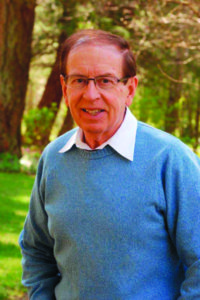
On November 25, 2016, Fidel Castro the despotic ruler of Cuba died. He ruthlessly ruled his countrymen for 47 years and died at 90. His brother Raul is now the ruler of Castro by succession, not by a vote of the people. That is because they don’t have elections. Castro enthusiastically embraced communism and all of its diabolical ideology. As a result thousands of people were unjustly put in prison, tortured and killed. Even today over 8,000 are being held as political prisoners because they have opposed the Castro regime.
The country is in shambles and that is putting it mildly. The people suffer but the press in America seems to ignore all of this. The headline in the USA, “Fidel Castro: Among World’s Most Influential Leaders for a Half a Century”. The New York Times headline read “Fidel Castro, Urban Revolutionary Who Defied U.S. Dies at 90″.
Fortunately Cubans are leaving the country as fast as they can find a way out. One of those is Gorge and his family. I will not use his last name because he still has family members in Cuba. The country is still under the iron fist of communism and he doesn’t want retaliation against his relatives.
Q. Tell us about your family.
I was born in Cuba and have a brother and sister, mother and father living there. Originally on my grandfather’s side they came from Spain. My father was a member of the communist party. My dad worked in a nickel mine run by the government, as an administrator. He divorced my mother when I was two. Times were very hard but I saw my father frequently. My father brought food to us when we had nothing to eat.
Q. How did your father react to you attending church?
My mother was very devoted to the church and we attended church every Sabbath. My dad came to the church and argued with my mom. He told her that she can’t take the children to church. My mother defied him and continued to take us to church. I think he was worried about the communist party leaders having the children taken away and his wife arrested and imprisoned.
Q. We often hear about the health care in Cuba. What is it like?
The health care is free and available, sort of. The problem is many health care professionals have left the country. They are paid $20 US per month. I earned more doing manual labor in Mexico in one day. The labs are not readily available because they can’t get the chemicals to do the work. The same holds true for X-ray services. You have to pay or have good friends to get proper health care. Neighborhood clinics are in very poor condition. A majority of hospitals are in bad condition because of bugs, poor hygiene and problems with their water systems. There are a few good hospitals. All medications outside of the hospital you have to pay for 100%. There are no free medications once you leave the hospital; you are on your own.
Q. What do they pay their professionals?
On average professionals, doctors, engineers, and teachers are paid $20.00 per month. Recently doctors were given a pay raise to $60.00 per month. It is common to see taxi drivers with engineering degrees. It is the equal pay for equal work we are now hearing in the U.S. This is very dangerous.Q. What is the education system like?
There is preschool through high school. A limited number go onto college. They separate the students at the high school level. Depending on their test scores they go onto being professionals, trades or working in agriculture. They start working on farms owned by the government at 12 years of age. All students are required to work on the coffee farms for a minimum of one month. Many students do not go onto to higher education and seek other means of making money to survive. Some go into prostitution and other forms or crime. It is very hard to find work to support your family. Some people give up and live off of the government.Q. What did you do to survive?
When I was 12 years old, I sold pancakes and mangos on the street, which is illegal. My father tried to stop me but I was making more money than he was. There was a time during the 90’s that food was very scarce. We had no beans or rice but only bread. Many people starved during that time. Also we couldn’t get shoes or clothing, everything was in short supply or it cost too much to buy.
Q. Is food readily available?
Food is very expensive because many things have to be imported. As an example we only had fish once a year. You can’t get fish because the government owns all the boats or controls them. The rest of fishermen and their boats have left the country. Fruit, vegetables and meat unless they are local are too expensive for the Cuban people. Cheese for example we only had once or twice a year. Soap is also in short supply. Beans and rice are the usually available but again all food is expensive and our monthly incomes are very, very low.
In part two Gorge will share his amazing odyssey of leaving communist Cuba.
No Comments
Leave a comment Cancel